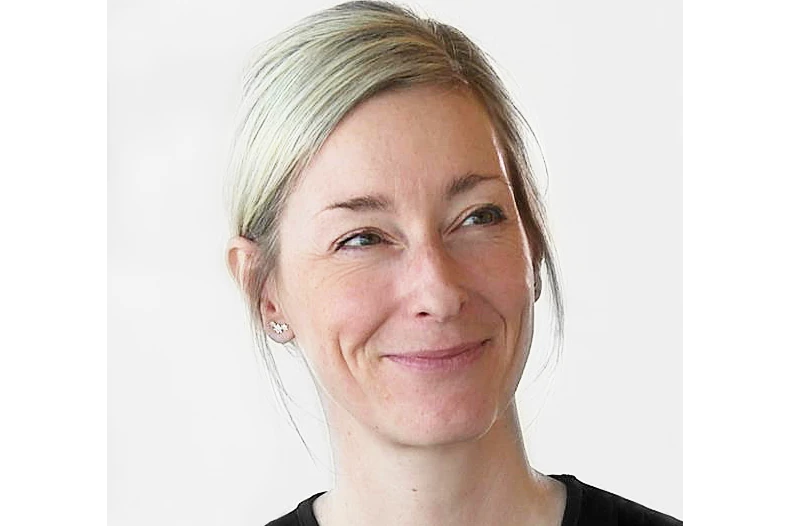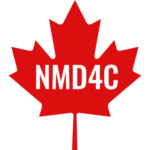Élise Duchesne

Working Group Member
Professor, Physical Therapy program at the School of Rehabilitation Sciences, Faculty of Medicine, Université Laval
Researcher at the Centre for Interdisciplinary Research in Rehabilitation and Social Integration (CIRRIS), the CHU de Québec-Université Laval Research Center, and the Interdisciplinary Research Group on Neuromuscular DIseases (GRIMN)
NMD4C Involvement: Pillar 1: Preclinical Science, Pillar 2: Clinical Research
Email ÉliseResearch Interests: muscle plasticity, skeletal muscle physiology, macrophage, muscle biology / physiology, cell culture, innate immunity, flow cytometry, cellular immunology, muscle damage
Academic web profileGoogle Scholar profile
ORCiD profile
Biography
Dr. Elise Duchesne is a Full Professor in the Physical Therapy program at the School of Rehabilitation Sciences, Faculty of Medicine, Université Laval. She is also a researcher at the Centre for Interdisciplinary Research in Rehabilitation and Social Integration (CIRRIS), the CHU de Québec-Université Laval Research Center, and the Interdisciplinary Research Group on Neuromuscular DIseases (GRIMN). With a background in muscular physiology and physical therapy, Dr. Duchesne focuses her research on rare diseases with muscular impairments, particularly using a translational approach to bridge the gap between laboratory findings and clinical application.
Her work is primarily centered on rare neuromuscular diseases such as Autosomal Recessive Spastic Ataxia of Charlevoix-Saguenay, Oculopharyngeal Muscular Dystrophy, and Myotonic Dystrophy Type 1 (DM1). She is involved in several groundbreaking studies, including a multicenter randomized controlled trial investigating the effects of rehabilitation intervention in rare diseases.
Dr. Duchesne’s research has gained international recognition, with her recent work on senescent muscle stem cells in DM1 being highlighted in the prestigious journal Nature Communications. Additionally, her studies were named among the top 10 scientific discoveries of 2023 by Québec Science magazine. She is funded by the Fonds de recherche du Québec and the Canadian Institutes of Health Research, and she collaborates with an interdisciplinary, intersectoral team of experts to advance understanding and treatments for rare diseases.
Her efforts to explore exercise interventions in neuromuscular conditions, particularly through randomized controlled trials, underscore her commitment to improving patient care and understanding the pathophysiological changes induced by physical activity. Dr. Duchesne’s leadership in international consortiums further solidifies her as a leading figure in the field of neuromuscular research.
Recent Publications
van As, D, Claeys, T, Salz, R, Haver, DV, Dufour, S, Deelen, AV et al.. Large-scale proteomics profiling of peripheral blood of DM1 patients identifies biomarkers for disease severity and functional capacity. J Neuromuscul Dis. 2026. 22143602251410443 PMID:41544176
Bélair, N, Gagnon, C, Duchesne, E. What is known about muscle weakness, balance impairments and indoor mobility limitations in oculopharyngeal muscular dystrophy? A scoping review. J Neuromuscul Dis. 2025. 22143602251397052 PMID:41467981
Marcangeli, V, Girard-Côté, L, Di Leo, V, Roussel, MP, Lawless, C, Charest, O et al.. A 12-Week Strength Training Improves Mitochondrial Respiration, H2O2 Emission and Skeletal Muscle Integrity in Women With Myotonic Dystrophy Type 1. Acta Physiol (Oxf). 2025.241 (12)e70135 PMID:41241935
Morin, E, Doumard, E, Hartnell, LM, Salegi Ansa, B, Leduc-Gaudet, JP, Quillien, A et al.. EMito-Metrix enables automated evaluation of mitochondrial morphology across species. Nat Metab. 2025.7 (11)2179-2182 PMID:41094017
Fabre, P, Molina, T, Larose, J, Greffard, K, Généreux-Gamache, G, Deprez, A et al.. Bioactive lipid mediator class switching regulates myogenic cell progression and muscle regeneration. Nat Commun. 2025.16 (1)5578 PMID:40595516
Lessard, I, Hébert, LJ, Brais, B, Duchesne, E, Rodrigue, X, Brisson, JD et al.. Selection of Clinical Outcome Assessments for Trial Readiness in ARSACS - 2-year Progression and Responsiveness to Change Part 1: Disease Severity, Swallowing, Upper Limb Function, and Participation. Cerebellum. 2025.24 (4)106 PMID:40450178
Lessard, I, Duchesne, E, Hébert, LJ, Brais, B, Rodrigue, X, Routhier, F et al.. Selection of Clinical Outcome Assessments for Trial Readiness in ARSACS - 2-year Progression and Responsiveness to Change Part 2: Mobility, Balance, and Lower Limb Coordination. Cerebellum. 2025.24 (4)95 PMID:40332679
Voorn, EL, Lucia, A, Vissing, J, 281st ENMC workshop study group. 281st ENMC international workshop: 2nd ENMC workshop on exercise training in muscle diseases; towards consensus-based recommendations on exercise prescription and outcome measures. Hoofddorp, The Netherlands, 4-6 October 2024. Neuromuscul Disord. 2025.49 105318 PMID:40174322
Lessard, I, Gagnon, C, Tremblay, M, Girard-Côté, L, Côté, I, Aubertin-Leheudre, M et al.. A Tailored Home-Based Training Program Improved Ataxia Severity and Participation in Adults With ARSACS. Cerebellum. 2025.24 (3)63 PMID:40095137
Mahdavi, M, Kim, TY, Prévost, K, Balthazar, P, Gagné-Ouellet, V, Hus, IF et al.. Influence of CTG repeats from the human DM1 locus on murine gut microbiota. Comput Struct Biotechnol J. 2025.27 733-743 PMID:40092662
See more on PubMed